The corporate and group insurance sales world is like the big leagues of insurance sales. Those working this area see larger deals but with far longer sales cycles. These bigger deals lead to much higher commissions, yet potentially stickier clients working with you for the long term.
Group and corporate sales are the “Chef’s kiss” of insurance sales, but they’re also not for the faint of heart. Constant hustle, white-knuckle patience, and innovative strategy are the calling cards of this side of the business.
However, it can be seriously rewarding for the successful, so here’s what you need to know to get started in group insurance sales.
Understand What You’re Selling
When you’re pitching group insurance, you’re not just selling a product but solving a business problem organizations need to address, like:
- Staying competitive in hiring and retention
- Keeping their workforce healthy and productive
- Controlling benefit costs while offering value.
You’re offering a benefits strategy which is very important to human resource leads or CFOs who live and operate in this space.
Know Who Your Buyers Are
You’re not calling “Joe,” who wants a $100,000 term policy to protect his family, but talking to:
- Business owners, especially in smaller companies
- HR directors
- Benefits administrators
- CFOs or finance teams
Each of these people cares about different things.
- HR might focus on employee morale and ease of enrollment.
- Finance is all about cost containment.
- Owners want value, minimal disruption, and personal attention on the side.
So, tailor your message based on who you’re talking to, making sure to hit the main concerns in your conversations with them. Ask good questions to dig deeper and provide better, more precise answers you will need to know for developing solutions.
Get Familiar with the Core Products
You need to understand the basics of the most common group insurance products, like:
- Group health (fully insured vs. level-funded vs. self-funded)
- Group dental and vision
- Group life and disability (short term/long term)
- Voluntary benefits (accident, hospital indemnity, critical illness)
The more value you add around how benefits are structured, not just what’s in the plan, the more seriously you’ll be taken.
Build the Right Partnerships
If you’re not already working with general agencies (GAs), now’s the time to make friends since a solid GA provides you:
- Access to competitive carriers and rates
- Underwriting support
- Proposal building tools
- Compliance assistance
- Enrollment platforms
A good CPA and HR consultant in your area cam help partners if you’re going to be successful in group insurance. These partners refer you to growing companies looking to take their benefits to the next level.
Master Prospecting Without the Cringe
You’ll hear that “cold calling doesn’t work” or “email’s dead.” What doesn’t work is generic, spammy outreach, so here’s what does work:
- Research companies before you reach out.
- Use LinkedIn to find decision-makers and send a friendly, benefit-focused message that’s not a pitch.
- Offer something helpful, like a benchmarking report, compliance checklist, or a benefit budgeting guide.
- Follow up consistently using tact.
Attending business networking events, chamber luncheons, and industry trade shows are great ways to meet prospects. You’re not just looking for clients but building relationships.
Be Ready for a Longer Sales Cycle
Selling a group health plan isn’t like selling a Medicare Supplement over the phone in 45 minutes, so expect a sales cycle to look like this:
- Initial conversations
- Follow-up meetings
- Proposal gathering and presentations
- Internal decision-making by clients
- Implementation and enrollment
From the first touch to signing, it can take anywhere from 30 days to 9 months, depending on the size and complexity of a deal, for a final decision to occur. But once you land the client, you’ve got potential recurring revenue for years.
Sharpen Your Presentation Game
You’ll likely be asked to present to a leadership team or HR committee, so your presentation needs to:
- Be clear, not technical
- Highlight savings and value
- Know your numbers
- Address the employees’ concerns about your solution.
- Look polished, professional.
A simple, professional slide deck goes a long way, and don’t be afraid to say, “Let me get back to you on that” if you get a curveball question.
Keep Clients Happy After the Sale
A lot of agents lose the renewal because they go radio silent after an enrollment, so stay involved by:
- Quarterly check-ins
- Offering benefits education for staff
- Helping troubleshoot billing or claims issues
- Preparing early for renewals
- Bringing new ideas each year, like ICHRA or wellness programs.
Retention is everything in group insurance, so don’t just sell, but serve.
Breaking into corporate and group insurance sales isn’t easy, but it’s not impossible. Start small, keep learning, and don’t be afraid to lean on support from your GA or carrier representatives.
There’s a reason many successful agents pivot to this space. Group insurance sales provides agencies with scalability like no other insurance segment.
If you’re tired of chasing one-off individual sales, this may be your next big move. For assistance with group sales questions and concerns, contact the market manager near you or the Agility Agent Support team at (866) 590-9771 or email support@enrollinsurance.com.
Let Agility use our sales peers’ experience to build your group benefits pitch or find your first few leads.



